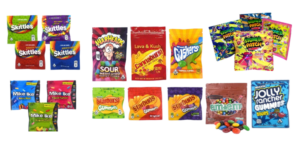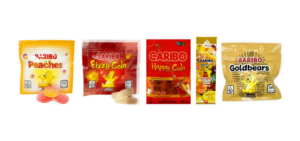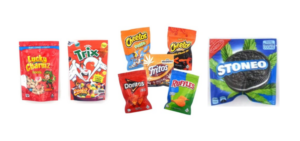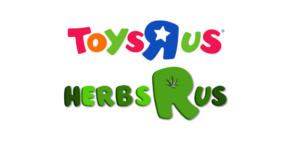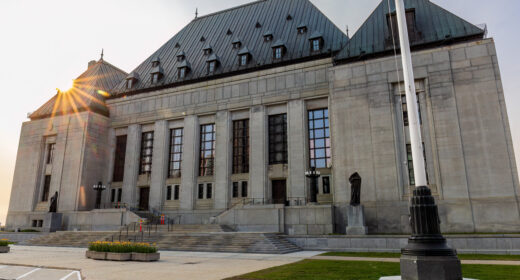In recent years, Canada has witnessed a surge in the popularity of cannabis-infused edibles, with products ranging from chocolates to cannabis gummies taking center stage in this trend.
These edibles come in various forms, often mimicking beloved confectioneries and candies. While they may appear harmless, a troubling issue has come to the forefront, one that raises complex legal and ethical questions – the unauthorized use of famous trademarks on these cannabis edibles.
With the legalization of cannabis and related products for consumers over the legal age in Canada, which began in October 2018, the nation has entered a new era. Intellectual property rights, including trademarks, are vigilantly protected, and trademark agents work tirelessly to safeguard the identity and uniqueness of brands. However, when these trademarks find their way onto cannabis edibles without authorization, it creates a web of challenges that extend beyond trademark protection.
Consider the iconic Mars Company, celebrated for its chocolates and confectioneries, the renowned Maynard’s brand, known for its gummy candies, and household names like Betty Crocker and Hershey. Unauthorized cannabis chocolates bearing Mars’ trademark and gummies bearing Maynard’s trademark, as well as those resembling Betty Crocker and Hershey products, infringe upon the brands’ images and create confusion among consumers. It not only dilutes the distinctiveness of genuine Mars chocolates, Maynard’s gummy candies, Betty Crocker’s baked goods, and Hershey’s confectioneries but also jeopardizes the companies’ hard-earned reputations in the world of confectionery.
Similarly, the renowned German candy manufacturer, Haribo, famous for its gummy bears, faces a similar conundrum. When Haribo’s branding is replicated on cannabis-infused gummies, it violates trademark rights and raises serious safety concerns. In Canada, Health Canada has stringent regulations against flashy packaging for cannabis products, particularly those that could appeal to children. Nevertheless, some producers have crafted cannabis edibles that strikingly resemble popular confectioneries, including Haribo’s gummy bears.
What adds to the complexity of this issue is that children often recognize these brands and packaging, gravitating toward them due to their familiarity. The unauthorized use of well-known trademarks on cannabis edibles blurs the lines between what is a genuine confectionery and what is a cannabis product, making it even more challenging for parents to protect their children from accidental consumption.
Beyond chocolates and gummies, the realm of cannabis-infused edibles has expanded to include a surprising variety of products. Infused chips, cheesy snacks, and even breakfast cereal have entered the market, aiming to provide consumers with unique cannabis-infused options. However, this expansion presents its own set of challenges. Some of these products closely mimic the packaging and branding of well-known snack items, raising concerns not only about trademark infringement but also about the potential for unintentional consumption by children who might mistake them for their regular snacks. This evolving landscape of cannabis edibles underscores the ongoing need to protect trademarks and prioritize consumer safety.
The outcome has been far from ideal, with numerous reported cases of children accidentally ingesting these THC-infused edibles, mistakenly believing them to be ordinary candies. The repercussions of such accidental consumption can be severe, with children falling seriously ill and requiring medical attention due to the ingestion of THC, the psychoactive compound found in cannabis. It’s a deeply distressing scenario for parents who are committed to shielding their children from harm.
Recent legal cases have shed light on the gravity of the issue. One of the notable cases involved a store in British Columbia named “Herbs are Us,” a name bearing a striking resemblance to the iconic “Toys R Us.” In this case, the store faced legal consequences and was ultimately shut down due to the likely confusion it created among consumers. Moreover, “Toys R Us” was awarded $30,000 in damages and costs. Such legal precedents emphasize the gravity of trademark infringement, especially when it involves well-known brands.
In response to this pressing issue, our firm has taken decisive action. We have successfully taken down websites that were offering these counterfeit goods, thereby curbing the availability of cannabis edibles with unauthorized trademarks. This not only upholds the integrity of intellectual property rights but also contributes to a safer marketplace for all consumers.
In conclusion, the unauthorized use of famous trademarks on cannabis edibles, whether chocolates or gummies, is a multifaceted issue that touches on legal, ethical, and safety concerns. While trademark protection remains essential, the safety of our children must always be paramount. Infringement is never acceptable, but when children can be harmed, it becomes deeply personal. We must act quickly to take down the bad actors who jeopardize our children’s safety. By comprehensively addressing these challenges, we can work toward a safer and more responsible cannabis industry, one that safeguards both intellectual property and the well-being of our youngest generation. Legal precedents, such as the shutdown of “Herbs are Us,” underscore the significance of upholding trademark rights, especially in the context of cannabis legalization in Canada, which began in October 2018, for consumers of legal age. Recognizing that children gravitate toward these brands and packaging underscores the urgency of addressing this issue effectively.

